Despite the significance of sleep for one's physical and mental health, it can be tough to get adequate quality sleep each night. While we sleep, our body undergoes several processes that affect weight loss or gain, aging, physical condition, and mental well-being, among other things. Poor sleep can impact all aspects of your life. Thankfully, following good sleep hygiene practices each day can improve the quality of your sleep. Today there are many products and ways to ensure a better and more restful sleep, allowing you to wake up feeling refreshed. But are you struggling to fall asleep? Here you will find tips to help you doze off.
1. A Better Mattress and Bedding
Getting a good night's sleep is essential for overall health, and having the right mattress and bedding makes all the difference. Whether you prefer a firm or a soft mattress, memory foam mattress, which provides excellent support and conforms to your body shape. Investing in a better mattress and bedding may seem like a small upgrade, but it can make a huge difference in your daily life. Don't settle for a subpar sleep experience.
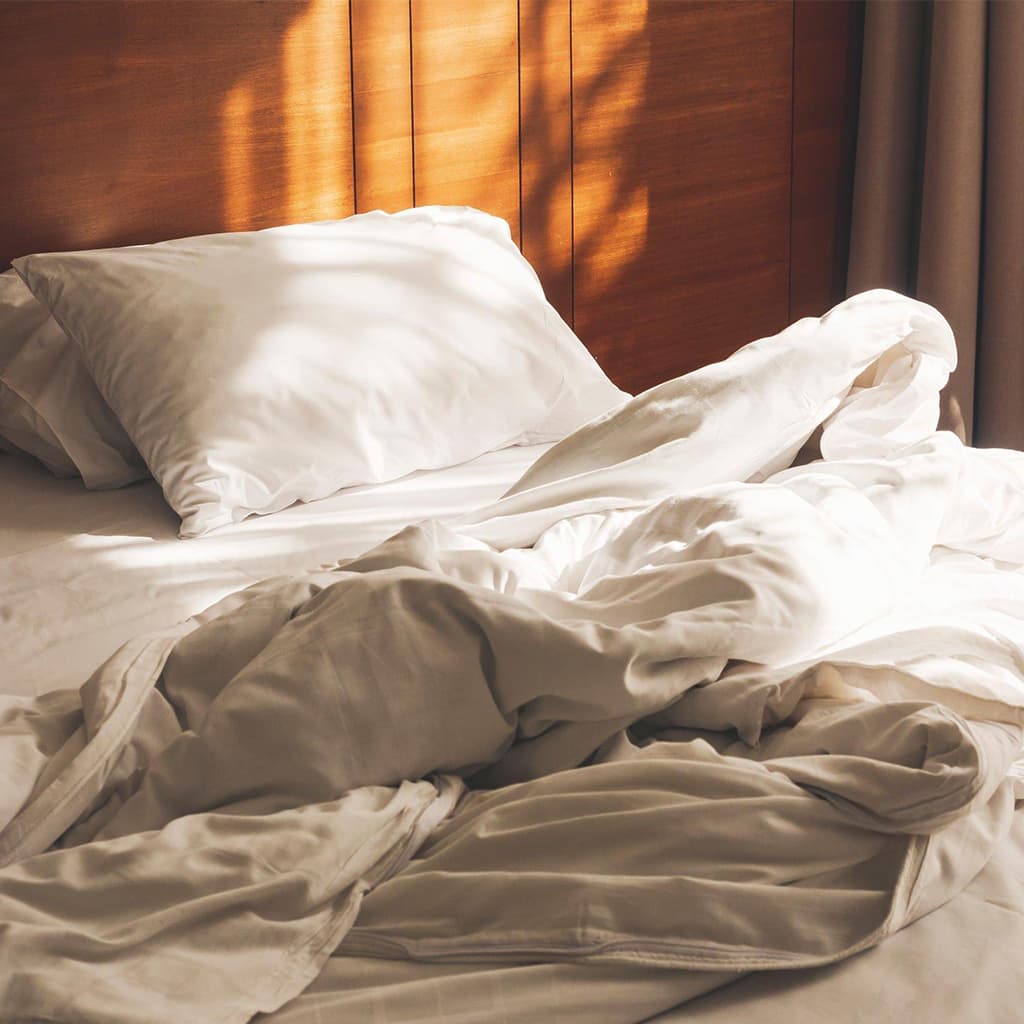
2. Block Out Your Light
Make sure your environment is conducive to sleep. If you're struggling to get some quality sleep, it could be due to your surroundings. One way is by blocking out light. By eliminating external light, you can create a dark environment that helps promote relaxation and better sleep. This can be achieved through the use of blackout curtains, blinds, or an eye mask.
Our blackout shades that keeps sunlight out and the blackout cellular shades are effective in reducing noise levels. Our blackout blinds come in a variety of sizes and colors to fit your needs. They are easy to install and can be customized to fit your windows perfectly. Say goodbye to sleepless nights and hello to a more restful sleep with Grandekor 100% blackout shades and blinds.
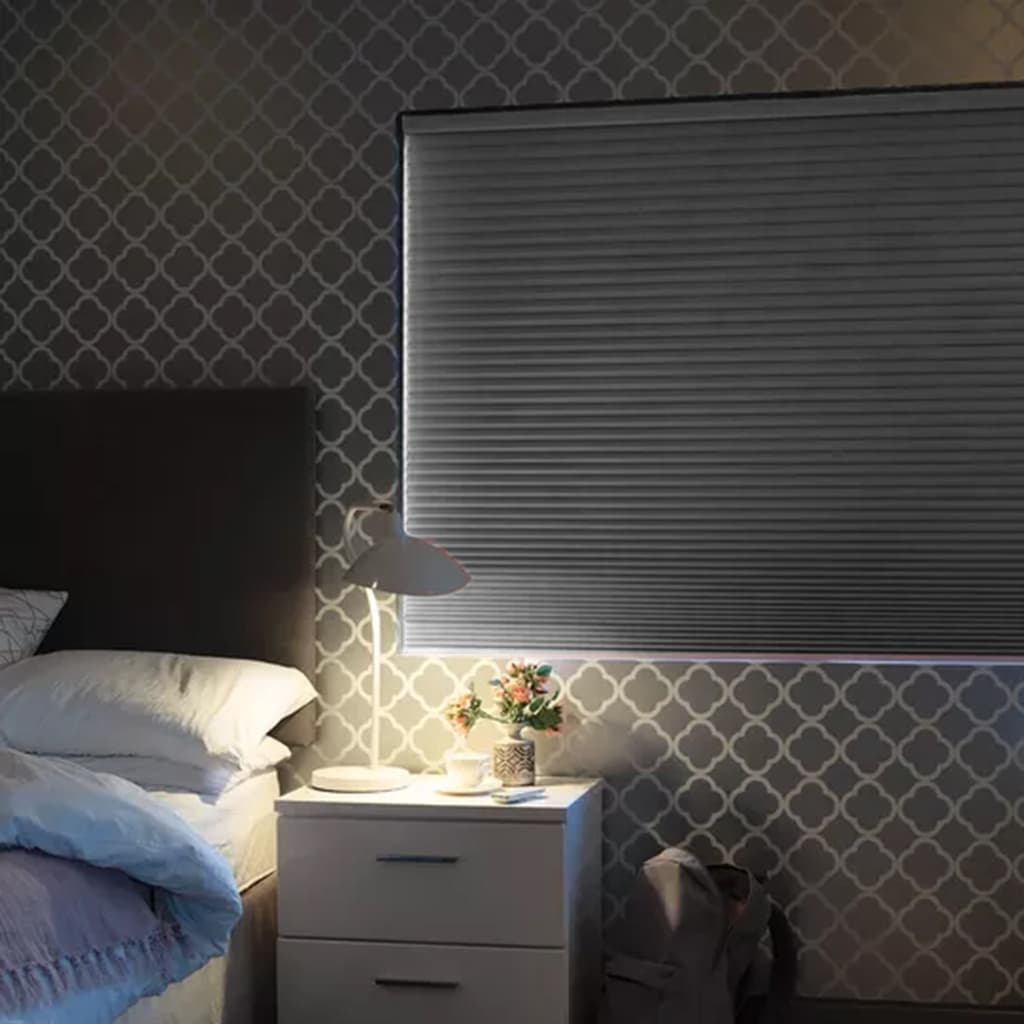
If you have electronic devices with bright screens, turn off those devices before you go to bed. This will reduce the amount of light in your bedroom. You can also use a lamp with a low-wattage bulb to create a dimmer light if you need some light in your room. To keep your bedroom completely dark during the night, you may need to seal gaps around doors and windows. You can use weather sealing or draft stoppers to prevent light from coming through these gaps. Remember that darkness is an important factor in getting a good night's sleep. By blocking out light from your bedroom, you can improve your sleep quality and wake up feeling refreshed. Try it out and see if it improves your sleep quality.
3. Put Your Phone Away
The advance of technology has changed many of our habits in the recent years. Our existence is intertwined with gadgets that simplify our lives, but can also lead to complications. Consider the cell phone as an example: it enables us to communicate, send messages, read, write, stream videos, listen to music, and work - all in one device. This amalgamation of features means that we remain tethered to it, even at bedtime, posing a risk to our well-being.
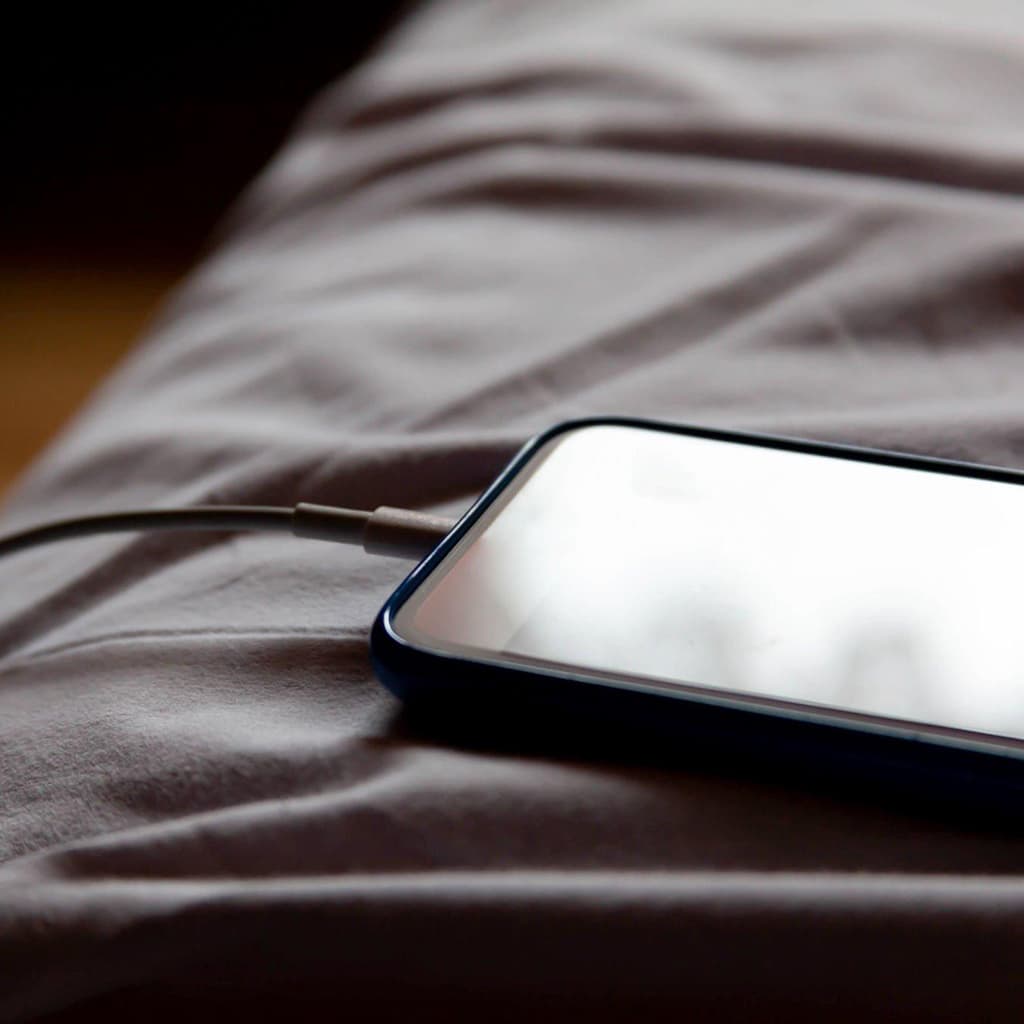
Numerous studies indicate that the light emitted from screens disrupts the adequate production of the hormone melatonin, responsible for regulating our daily sleep cycles. Melatonin is released in darkness and synchronizes our body functions with our biological clock.
If the last thing you do before going to bed is check your cellphone, your natural physiological process can get automatically altered. Delaying your hours of sleep or getting poor rest may affect the optimal functioning of your organism. That's why you should change some habits before sleeping. The best thing you can do is put your phone away so it doesn't distract you from sleep.
4. Take 30 Minutes to Relax Before Bed
It's important to wind down before bed to help you sleep better. Try relaxing for 30 minutes before going to bed. You could listen to soothing music, read a book, or take a warm bath. Avoid using your electronic devices during this time. Focus on relaxing instead of trying to sleep. There are various relaxation methods that can help you fall asleep, such as controlled breathing, mindfulness meditation, progressive muscle relaxation, and guided imagery. This will help your body and mind prepare for sleep.
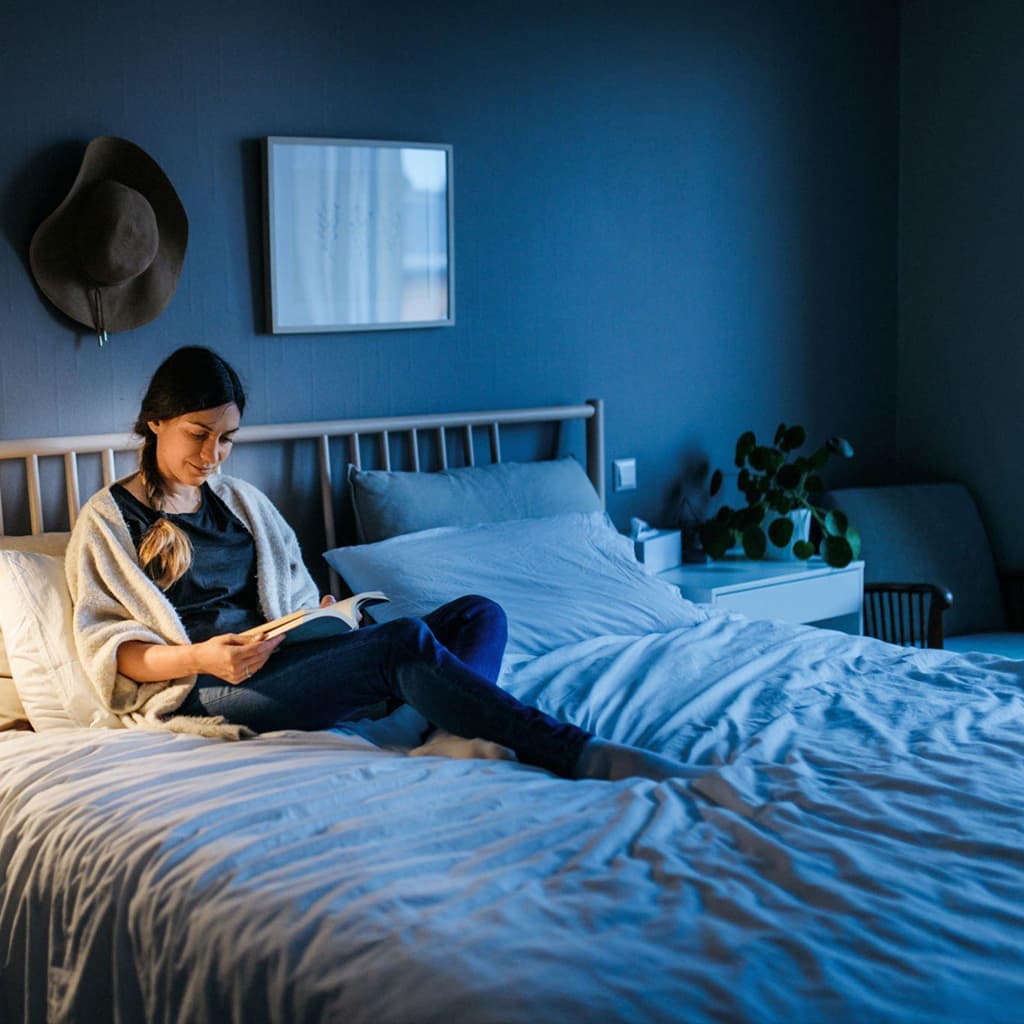
5. Try Aromatherapy
Aromatherapy is a great remedy for insomnia. Fragrances like lavender enhance our sense of smell and the part of our brain linked to relaxation. People even use lavender to help treat sleep problems. Aromatherapy oils are perfect for achieving a sense of relaxation and letting go of the stresses of daily life.
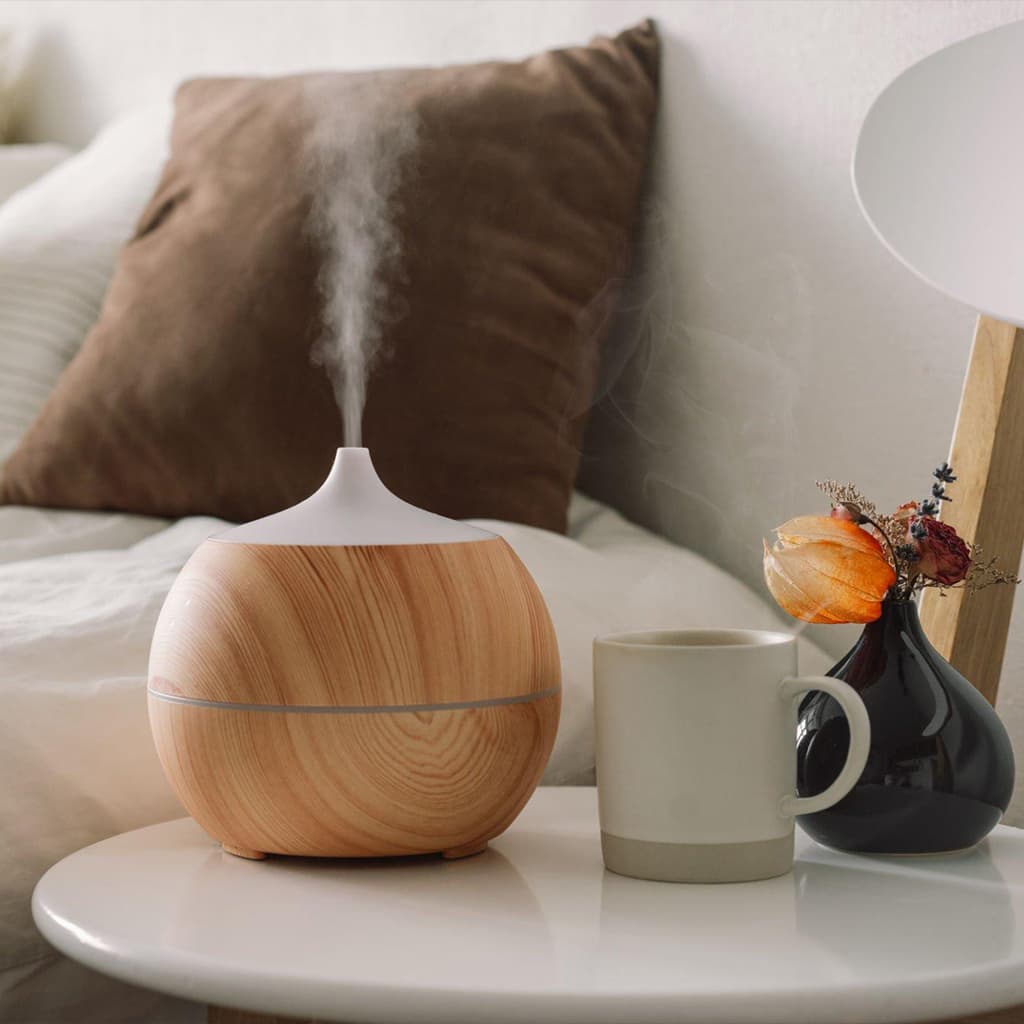
There are various ways to use aromatherapy like using aroma lamps, oils, aroma baths, and aroma cushions. You can have a soothing lavender essential oil bubble bath in the evening, light a scent dispenser or scented candle with fragrant oil, or sleep on a scented cushion, depending on what suits you best.
A successful day hinges on getting a restful night's sleep. Adhering to the recommended hours of sleep can yield improvements throughout the day, including enhanced work performance, sustained alertness and productivity, and greater energy to tackle daily tasks.

















Comments
Kudos to the author for highlighting the significance of sleep and providing such actionable tips for its enhancement. A truly enlightening read.